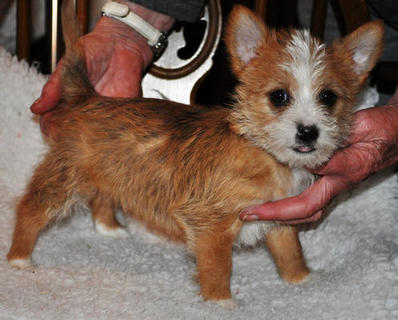
The dogs’ duties were keeping the ship rodent-free during the travels, in order to protect and preserve the food stores and prevent most of the sailors and lower-deck ratings from getting vermin-borne and several other diseases. In the 15 th and 16 th centuries, the breed was taken abroad on ships heading towards America. Firstly, using their sense of scent, then their excellent hearing, to locate the small animals. The dogs hunted alone and also were capable to work together in packs. The dogs’ responsibilities were to flush out the rabbits, capture, kill, and finally retrieve the prey for their human counterparts.

In the early days, the Portuguese Podengo Pequeno was bred to hunt rabbits for the people in the craggy Iberian countryside.

The ancient Roman, Phoenician, and Moorish traders and invaders brought the breed’s ancestors to the Iberian Peninsula over 2000 years ago. The breed, as their name suggests, is originated from Portugal. Loyal and fearless, Podengos are also good house guards and are amenable to training by Dog experienced people and those that enjoy primitive (unrefined, “less domesticated”) Dog behavior.It is believed that the Portuguese Podengo Pequeno is the world’s smallest hunting dog. Keen hunting Dogs, the Podengo has an affinity for chasing. Barking: Podengo Pequenos tend to be a bit barky, especially when they are excited or want to draw their owner’s attention to something they find interesting.Sociability (Other Pets): They are tireless hunting hounds that need to actively engage with people and other animals to stay physically and mentally fit.Reward-based techniques, using positive reinforcement rather than harsh verbal or physical corrections, makes teaching these dogs standard obedience commands a breeze.


Occasionally comb and brush to remove the dead and loose hair.


 0 kommentar(er)
0 kommentar(er)
